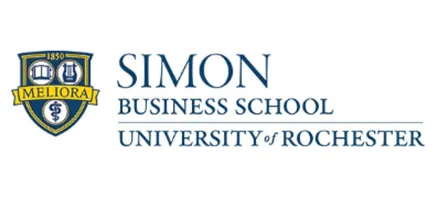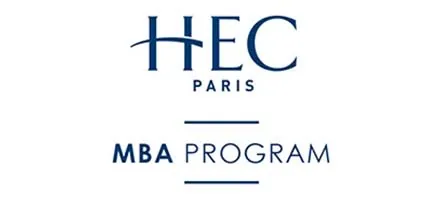
MBA students aren’t all that enthused about the shift to remote instruction, particularly in the absence of tuition discounts
Newly revealed data from a survey of business school admissions officers suggests that as long as classes continue to be taught virtually, support for tuition freezes among school leaders is surprisingly high.
This month, Dartmouth College Tuck School of Business announced that it will freeze MBA tuition for the 2021-2022 school year, a move surely applauded by incoming students at the top-10 program, where a small percentage of classes are anticipated to be taught in-person through the spring. Tuck — which, at $77,500 annually, had the highest tuition of any top-25 U.S. business school last fall — is only the latest leading B-school to freeze its tuition; eight other schools, including Harvard Business School, Stanford Graduate School of Business, and The Wharton School at the University of Pennsylvania, already froze tuition last year. In Harvard’s case, the freeze has now lasted for three years.
Even with tuition increases halted at some many schools, MBA costs overall have continued to go up. That’s because cost of living, something only partially within schools’ control, almost always rises year to year, particularly for schools based in urban areas. Even though HBS’ tuition of $73,440 hasn’t gone up since 2018, for example, the overall cost to get a Harvard MBA is an estimated $223,636 for a single student, and more than $300K for a married student with two kids — huge sums only partly offset by Harvard’s generosity in grants and fellowships. An MBA from nearby MIT Sloan School of Management is even more expensive for a single student: more than $240K over two years, whereas the degree costs in excess of $235K at three other schools: Stanford GSB, NYU Stern, and Columbia Business School.
What especially rankles many MBA students is that at many top schools, the ongoing remote delivery of most instruction hasn’t put much of a dent in the relentless increase of costs associated with the two-year MBA. That was true when Poets&Quants conducted a poll last March amid the onset of the coronavirus pandemic, and it remained true last September when Bloomberg Businessweek asked the same questions. Now newly revealed data from testing company Kaplan shows that within school leadership, many agree with the students: tuition should not be raised while classes remain virtual.
KAPLAN SURVEY: AMID VIRTUAL DELIVERY, 1/3 IN ADMISSIONS BACK TUITION DISCOUNT
Businessweek’s survey of 3,532 first- and second-year students from 95 B-schools last fall revealed that roughly half believed that what they were getting in MBA programs was not worth the cost. That belief was especially true at the highest-ranked, most expensive MBA programs. At schools where tuition and fees exceed $70,000 a year, 54.4% of the MBA candidates expressed buyer’s remorse — 28.5% “completely disagreed” that their education is worth the cost, while another 25.9% “somewhat disagreed.” Overall, student respondents gave a thumbs-down on the impact of Covid on their MBA experience, with 74% rating the impact “very negatively” or “somewhat negatively.” At business schools charging less than $40K a year in tuition and fees, 49.5% of the students disagreed that their education was worth the cost.
Overall, half of all the MBA students in the Businessweek poll said they would be willing to see at least 20% of their coursework go online in exchange for some level of tuition discount. “Charging full tuition for Zoom-only classes is complete highway robbery,” complained one student at an Ivy League B-school.
Kaplan conducted its survey of admissions officers shortly after Bloomberg’s poll, in October 2020, polling gatekeepers at 90 U.S. MBA programs, including 14 of the top 50 programs as ranked by U.S. News & World Report. Kaplan has conducted its survey for the last 15 years as a way to provide aspiring MBAs and others in the business education community the most accurate and up-to-date information on the admissions process, but last year it added a question specific to the pandemic and how it has transformed the MBA education landscape: “Do you think that business schools that switch to primarily online delivery should cut tuition?”
Kaplan did not release the responses to this key question last fall, but P&Q has learned that nearly a third, 32%, answered yes. Almost half, 47%, said no, while about a fifth of respondents, 21%, were unsure.
Even more eye-opening than the numbers are some individual responses. “There is so much value in the MBA that students are losing,” one admissions officer wrote. “People that buy an online MBA for the same price as in-person should not be MBAs because they don’t understand value.”
‘TUITION SHOULD BE TUITION IRRESPECTIVE OF MODALITY’
Another respondent, while supporting the basic idea of tuition reductions or freezes, added a major caveat.
“As a student I would have said yes,” the admissions officer wrote, “but it is certainly situation-dependent. To the extent that online delivery allows you to increase class size in order to reach the same or more revenue than in-person delivery, then tuition should come down accordingly.
“That said, on the administrative side it’s just as much (or more) work to deliver the same quality of course online as would be delivered in person, and unless you can significantly cut fixed costs (which schools likely won’t do in the near future) the cost of online delivery can’t simply come down because classes are moved online.”
That sentiment was echoed by another respondent: “The technology is more expensive, and staff and faculty spend just as much time and energy on the students’ education and experience. Our online students also have the same level of access to our networking and social events, professional development, and student organizations that our in-person students do.”
Added another: “Tuition should be tuition irrespective of modality unless there is an additional hard cost for delivery (which should be a student fee instead of a tuition difference).”
And another respondent pointed to a major hurdle to reducing tuition.
“A reduction in tuition,” they wrote, “would also need to be paired with a reduction of expenses — a factor outside the control of most business schools within larger universities. Business schools should instead work to deliver more innovative value for their students by adding resources (extracurriculars, advising, career services) that are accessible in digital spaces.”
DON’T MISS WHAT IT NOW COSTS TO GET A TOP-25 MBA and DARTMOUTH TUCK FREEZES MBA TUITION FOR 2021-2022









